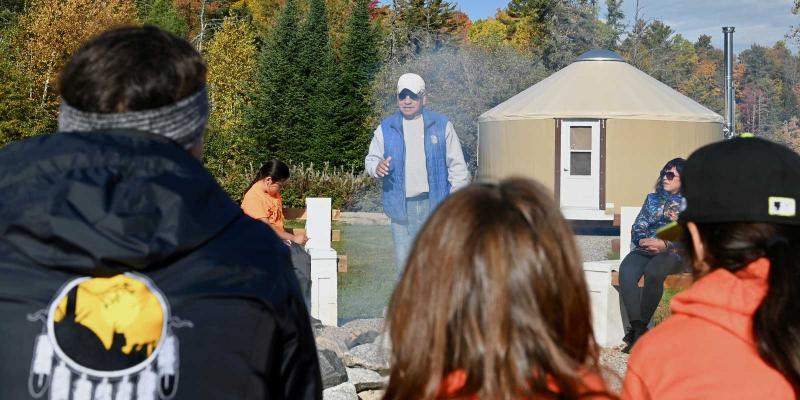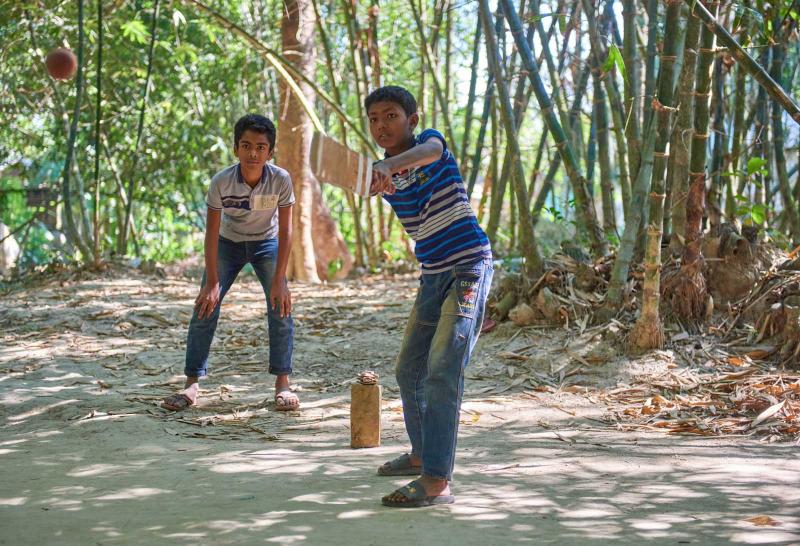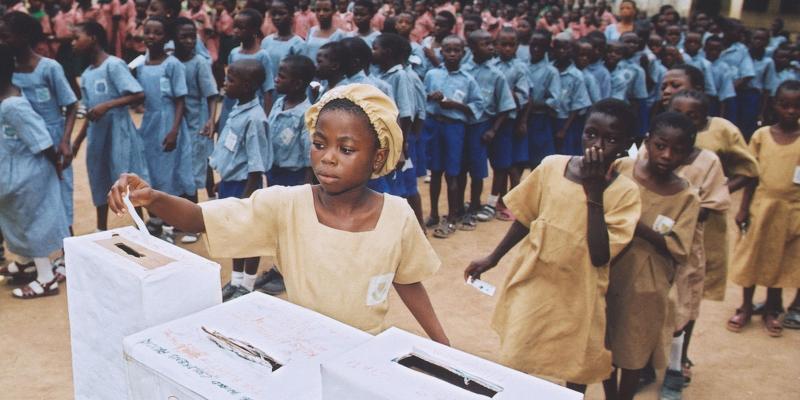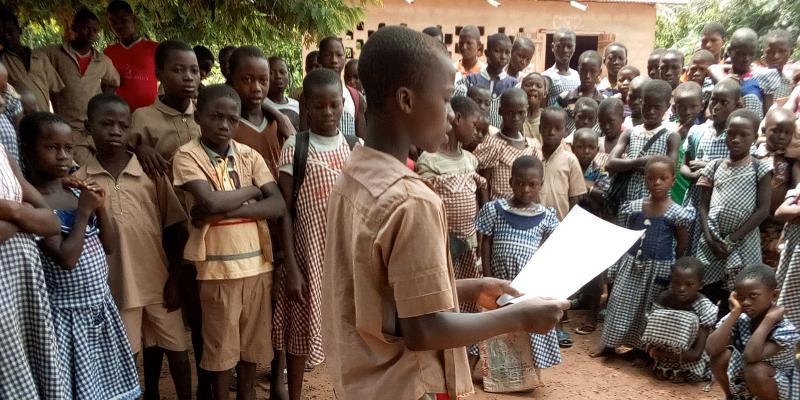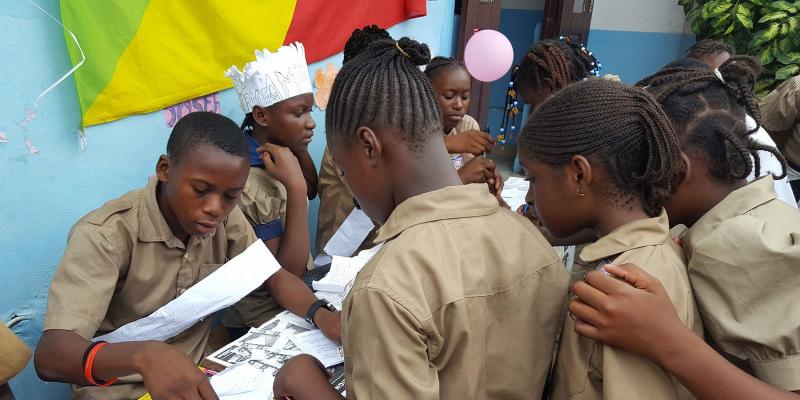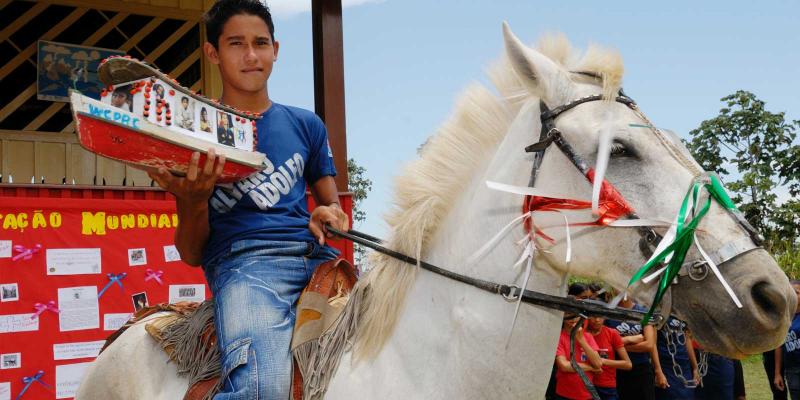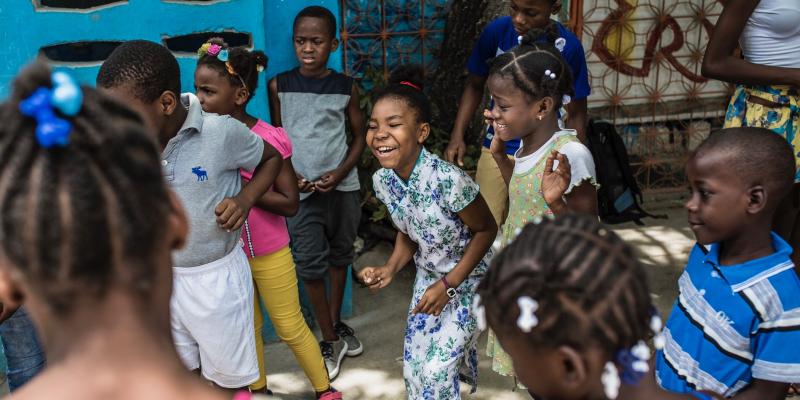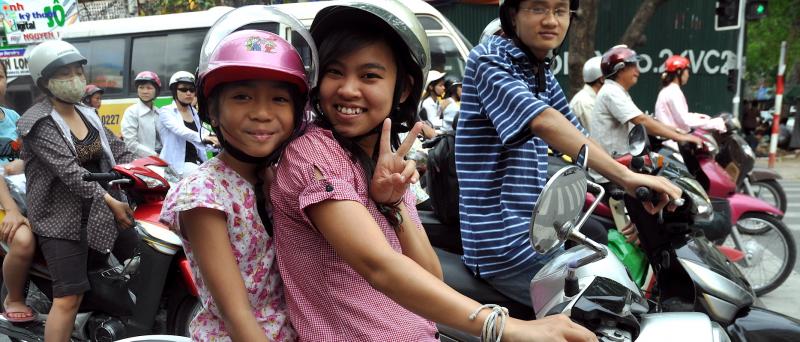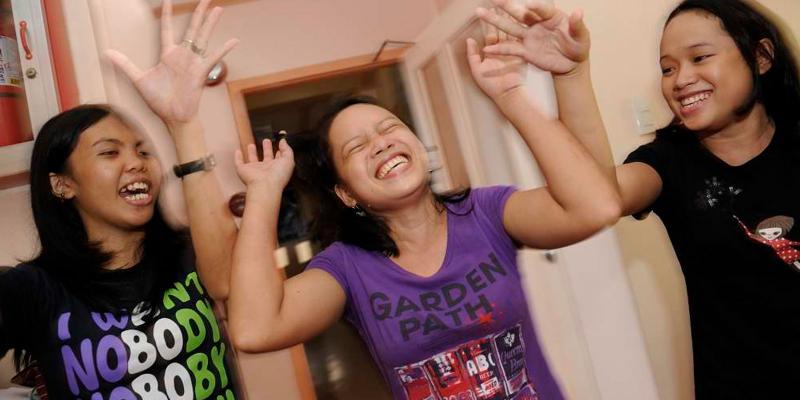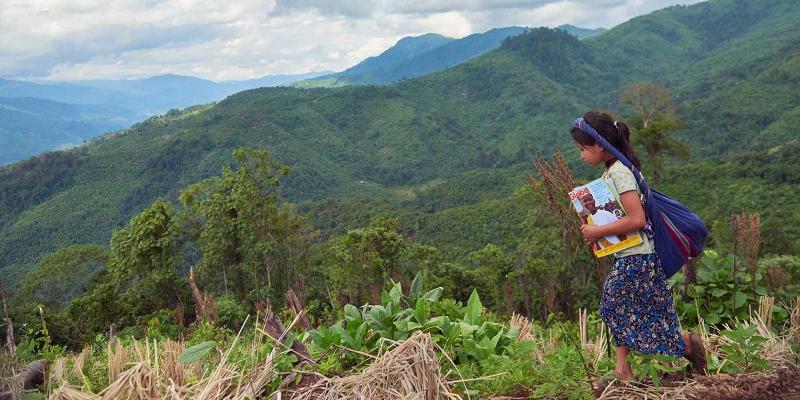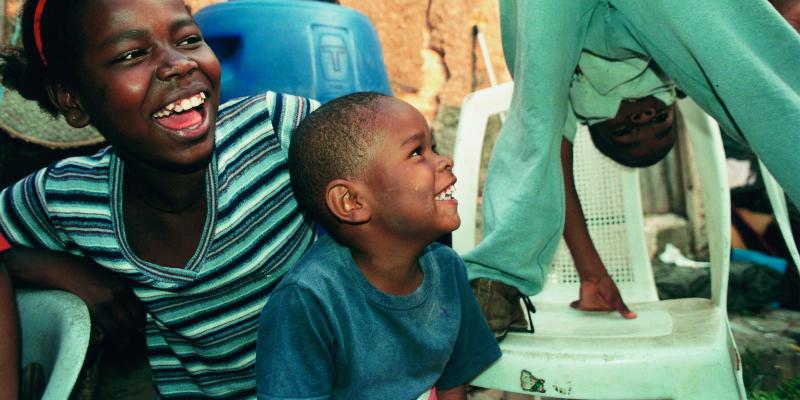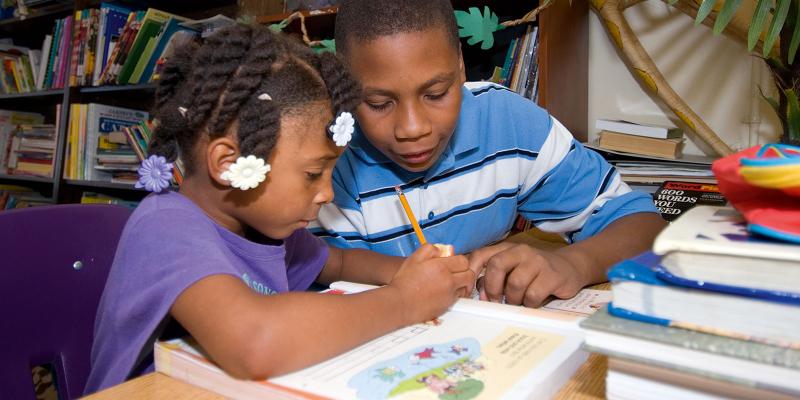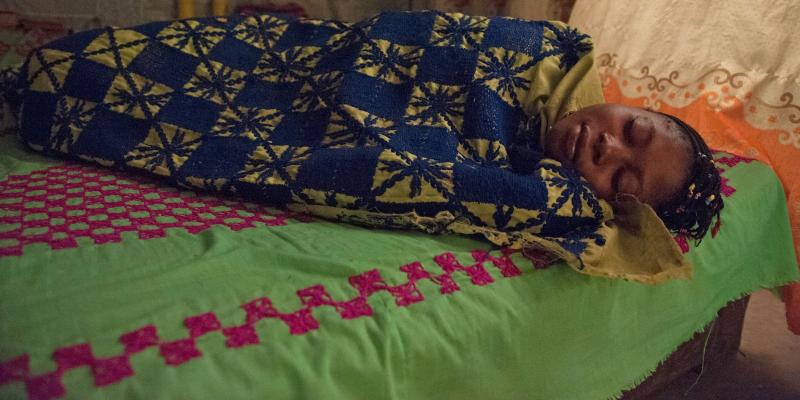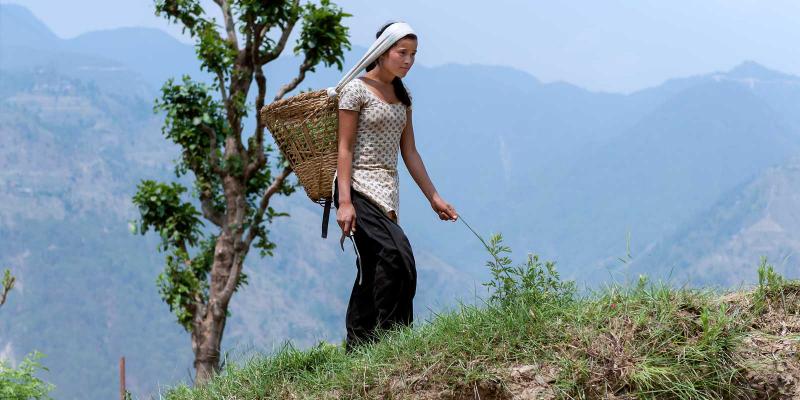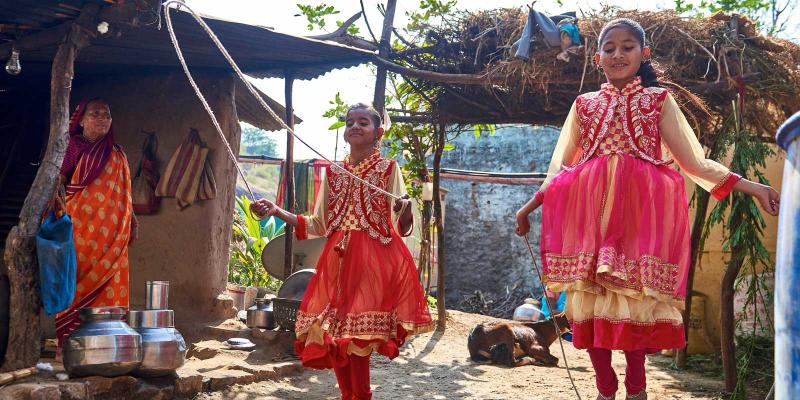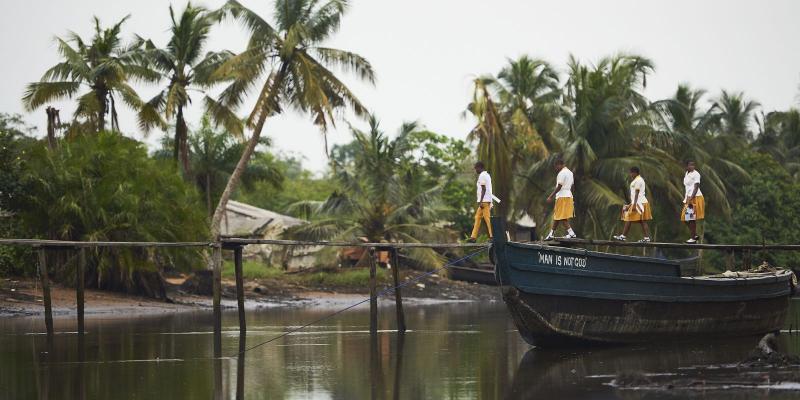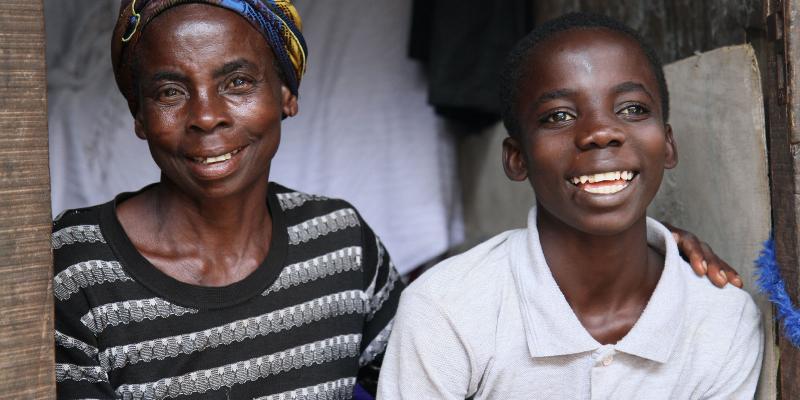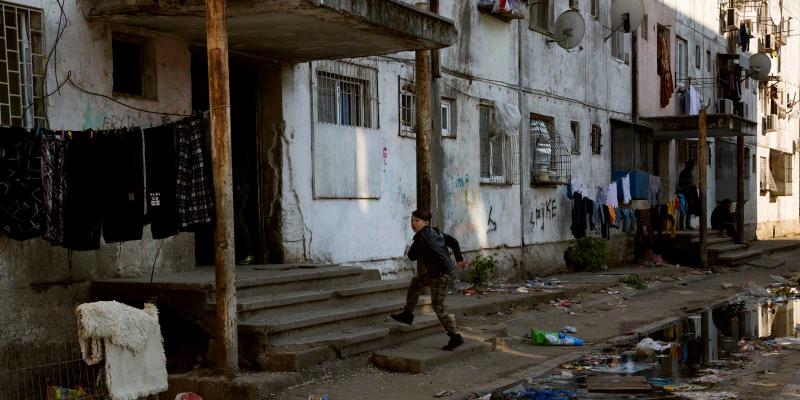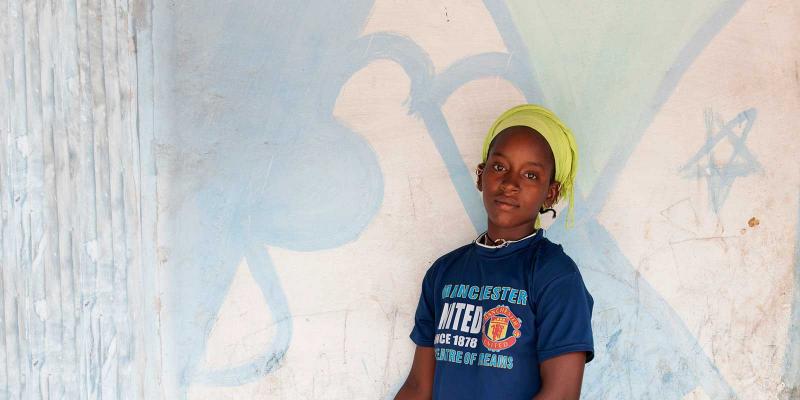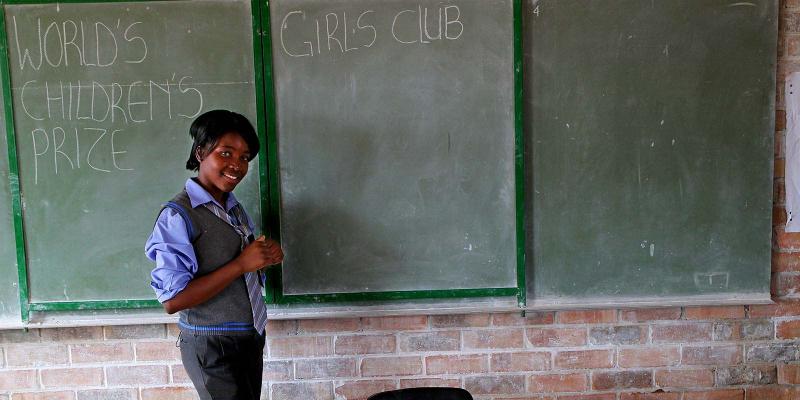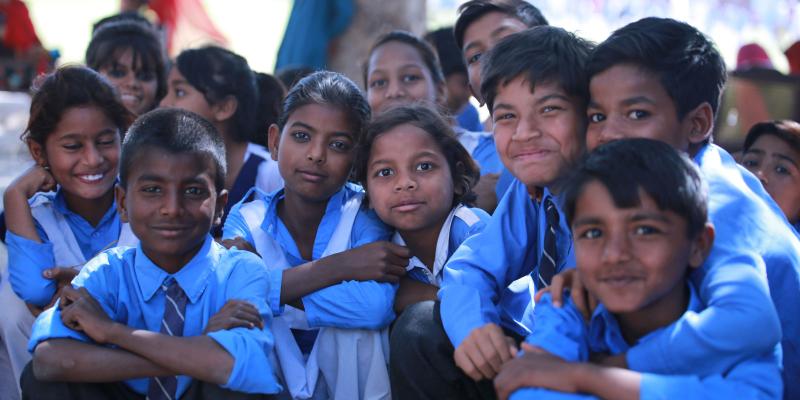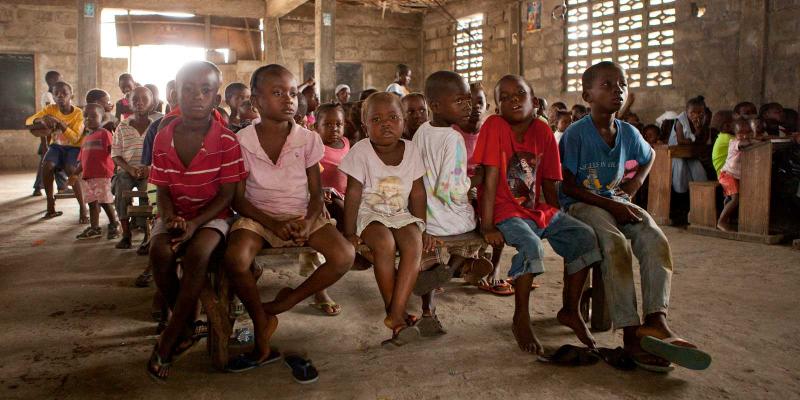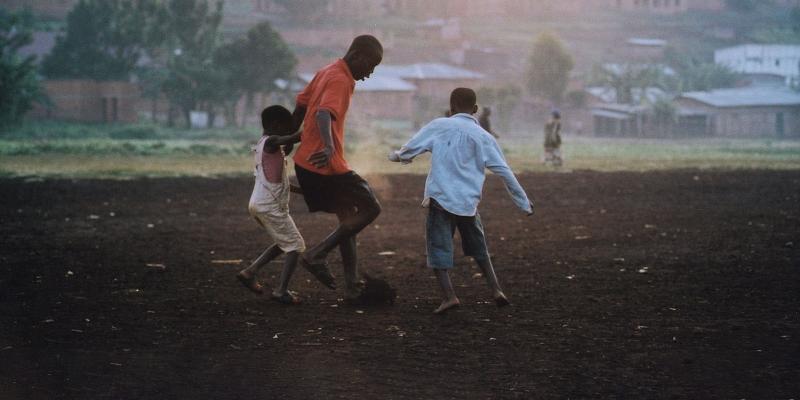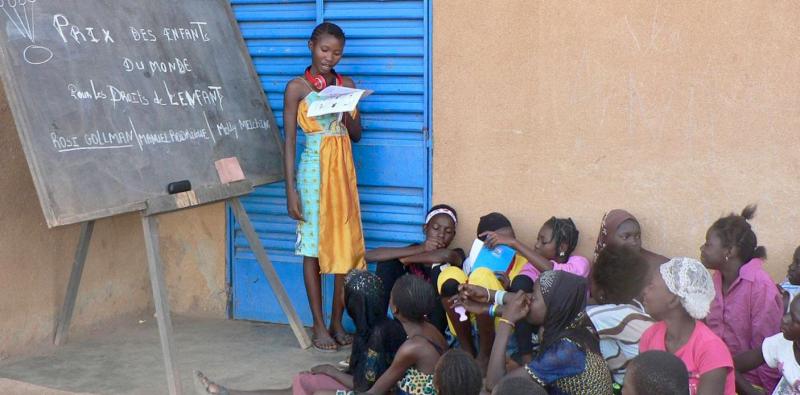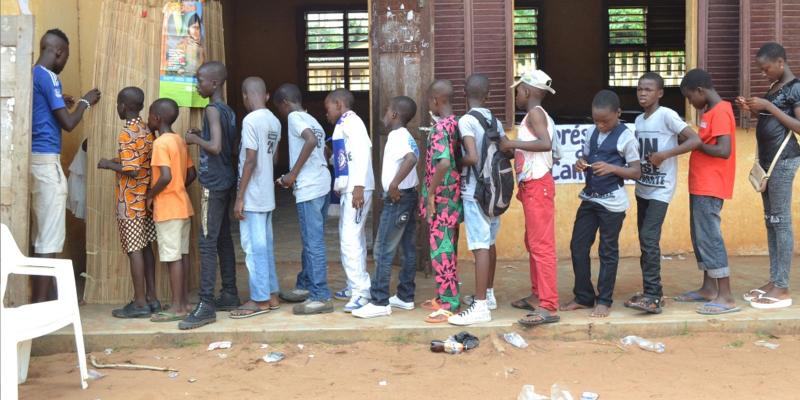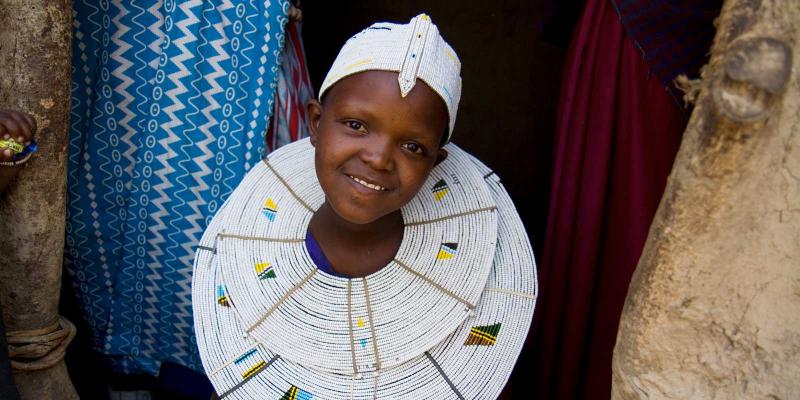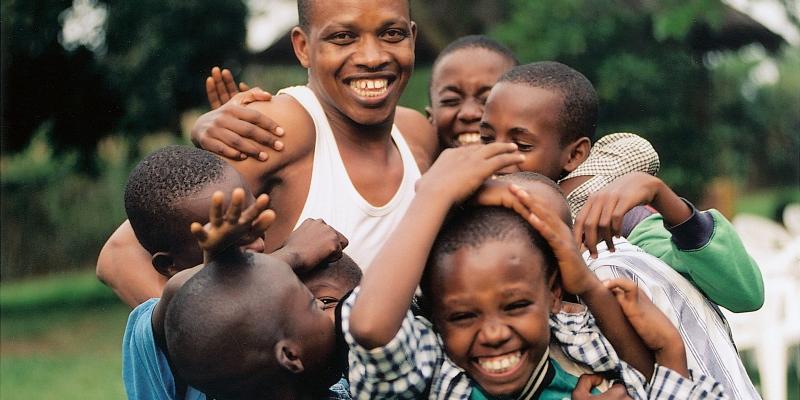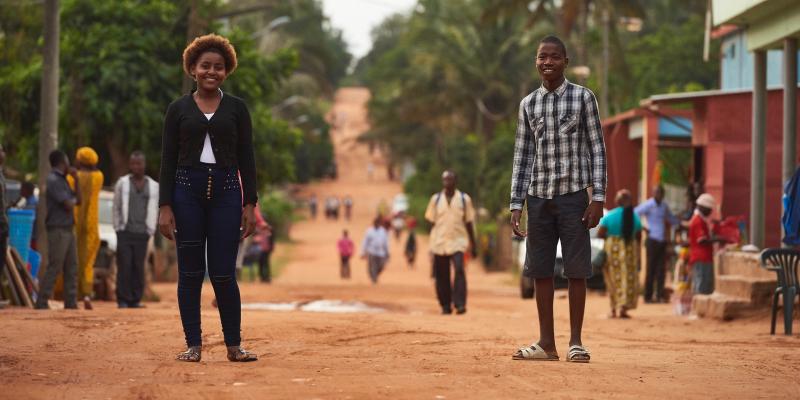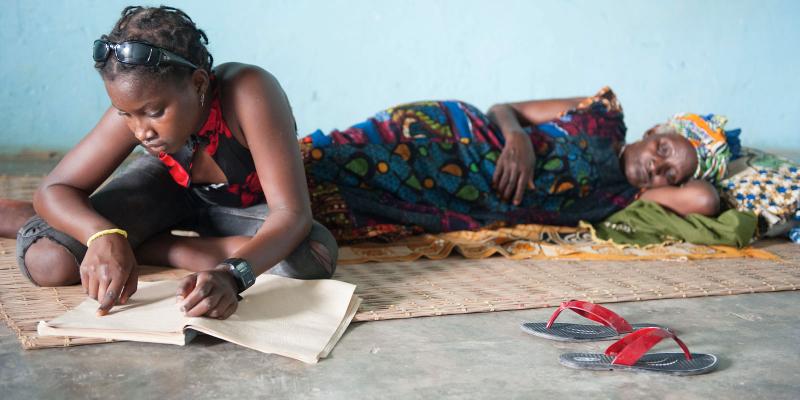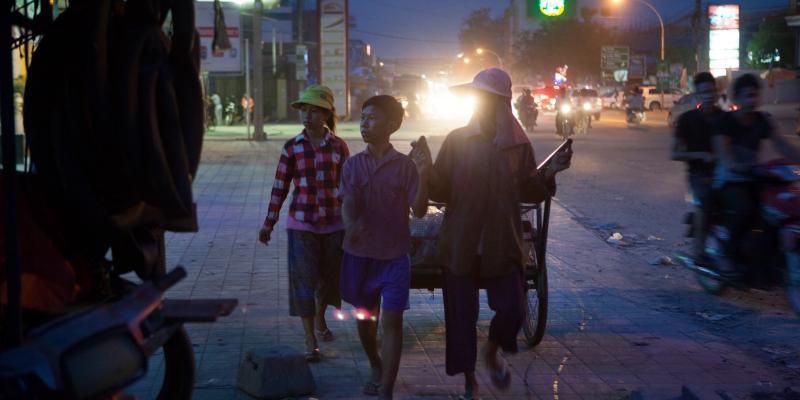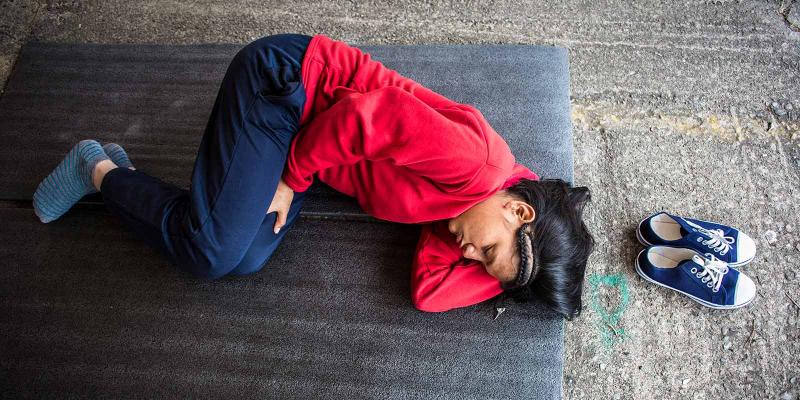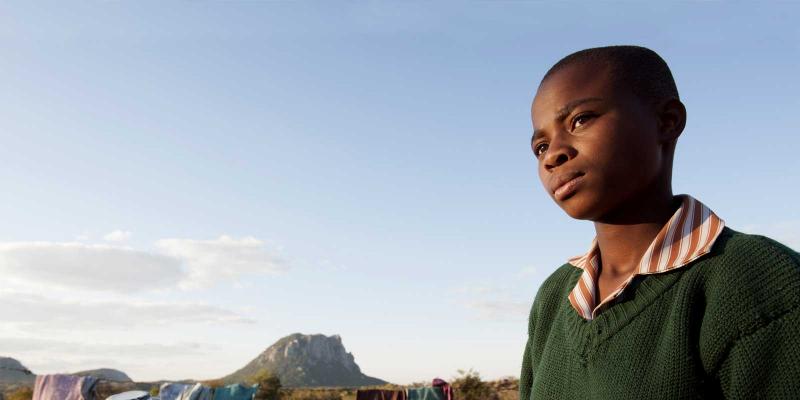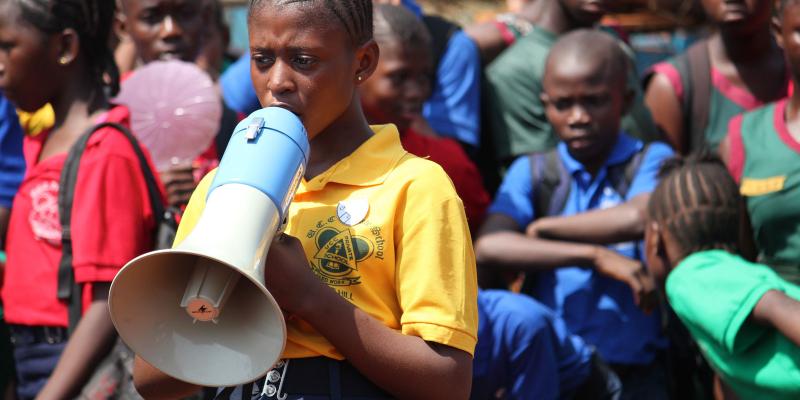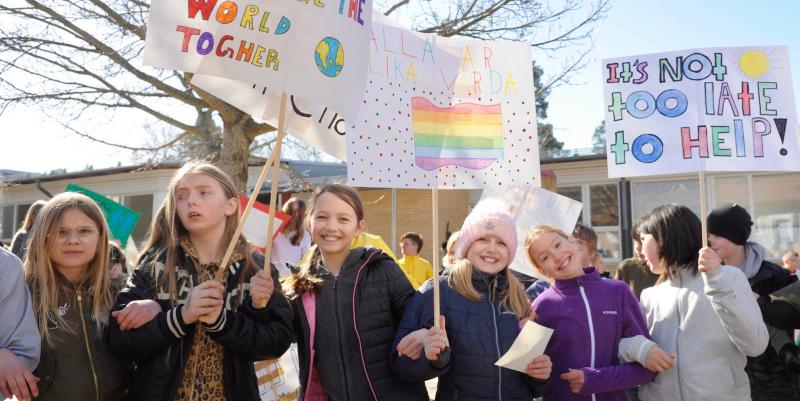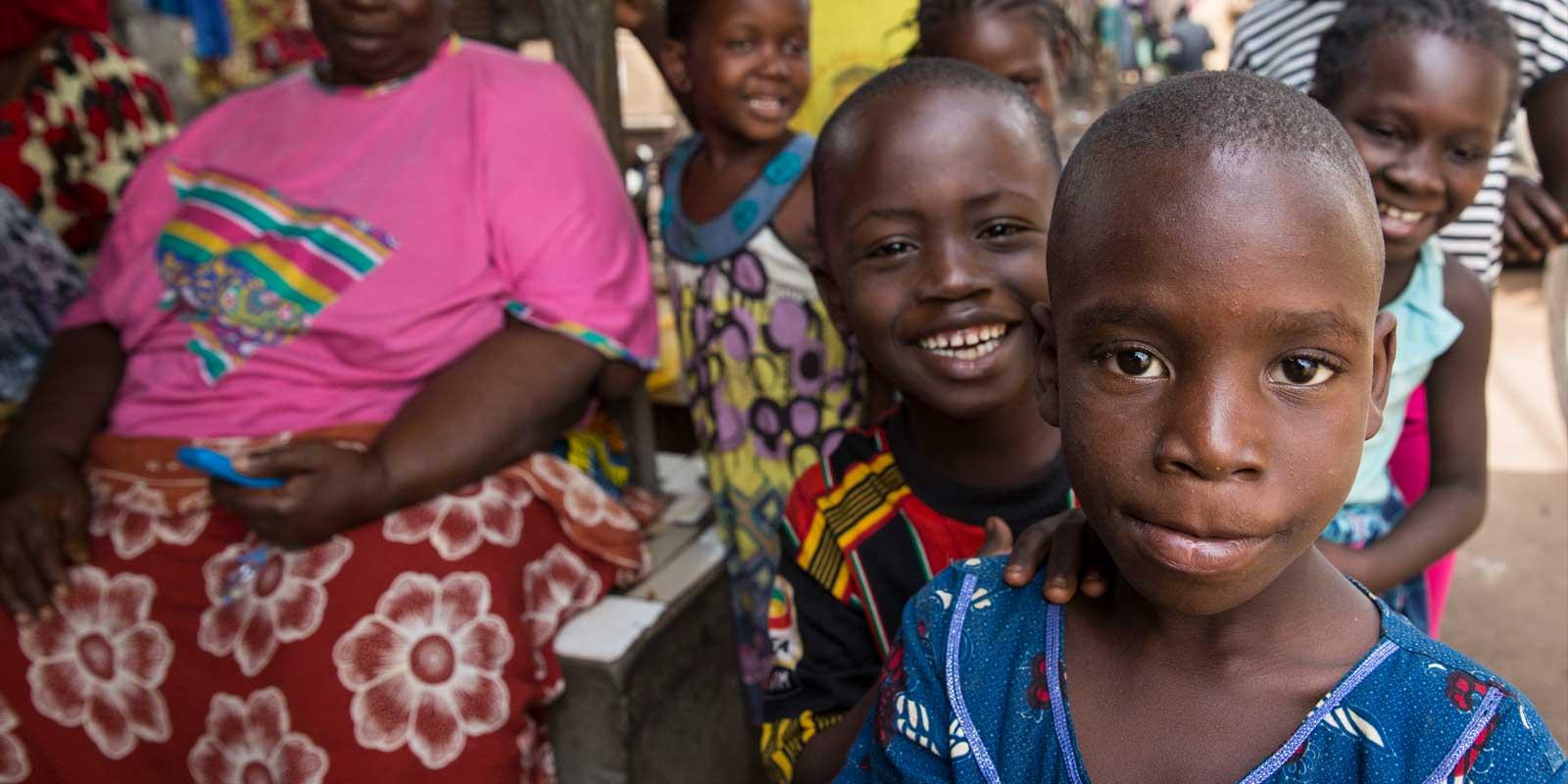
How are Guinea’s children?
Guinea has ratified (pledged to follow) the UN Convention on the Rights of the Child. This means that Guinea must respect the rights of the child and listen to what children have to say. Are the rights of the child respected in Guinea?
6.22 million children
12.4 million people live in Guinea. 6.2 million are children, and 2 million of the children are under five years old.Name and nationality
From the day you are born you have the right to have a name and to be registered as a citizen in your country. 442,000 children are born every year in Guinea. 4 out of 10 of them are never registered. There is no documented proof that they exist!Survive and grow
You have the right to life. Guinea must do all it can to allow children to survive and develop. 1 out of 10 children in Guinea (39,000 every year) die before the age of 5, usually due to causes that could have been prevented.Health and well-being
You have the right to food, clean water, medical care, and to privacy when consulting an adult about any health problem. 7 out of 10 children in Guinea have water from improved water sources, and 2 out of 10 have access to adequate sanitation facilities.A home, clothing, food and security
You have the right to a home, food and security. 35 out of 100 children in Guinea live in extreme poverty with less than 1.90 US-dollar (18 800 Guinea Franc) a day to live on.Education
You have the right to go to school. Primary and secondary schools should be free for everyone. More than 8 out of 10 children in Guinea go to school, but many of them leave school too early. And many children do not go to school at all.Protection against violence
You have the right to protection against all forms of violence, including neglect, maltreatment and abuse. Only 60 countries have forbidden all forms of corporal punishment for children. Guinea has not, and many schools still allow caning.Hazardous child labour
You have the right to be protected against both economic exploitation and work that is hazardous to your health or which prevents you from going to school. All work is prohibited for children under 12. Some children are forced into the worst forms of child labour, such as being debt slaves, child soldiers, or used for commercial sexual exploitation. An estimated 880,000 children aged 5-14 in Guinea have to work.Your voice must be heard
You have the right to say what you think about any issue that affects you. The adults should listen to the child’s opinion before they make decisions, which must always be made in the best interest of the child!Photo: UN Photo/Martine Perret
Related stories
WORLD'S CHILDRENS PRIZE FOUNDATION
Långgatan 13, 647 30, Mariefred, Sweden
Phone: +46-159-129 00 • info@worldschildrensprize.org
© 2020 World’s Children’s Prize Foundation. All rights reserved. WORLD'S CHILDREN'S PRIZE®, the Foundation's logo, WORLD'S CHILDREN'S PRIZE FOR THE RIGHTS OF THE CHILD®, WORLD'S CHILDREN'S PARLIAMENT®, WORLD'S CHILDREN'S OMBUDSMAN®, WORLD'S CHILDREN'S PRESS CONFERENCE® and YOU ME EQUAL RIGHTS are service marks of the Foundation.


x
x
x

